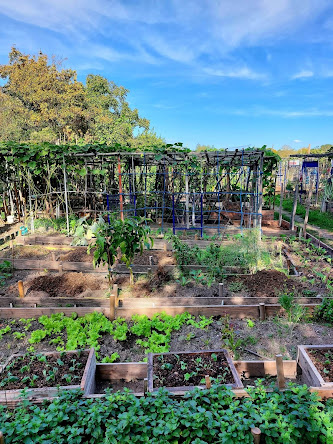FARMS IN THE CITY: Transforming Idle Spaces into Micro Farms and Food Gardens
Vienna is not only about beautiful churches, centuries-old architecture, famous painters and composers as well as rich cultural and historical heritage for which it is known for.
It is also big on greening, organic food production, and ensuring constant supply of quality fruits and vegetables from within the city.
AGRICULTURE IN VIENNA
Vienna is the national capital of Austria and the biggest of its nine states. The city is 414.6 km2 where 14% is devoted to growing fruits and vegetables of which 13% are grown organically.
While it is described as the “cultural capital of Europe” and a “metropolis with unique charm, vibrancy and flair,” it also supplies 1/3 of the volume of vegetable consumption of the city with a population of 1,931,593 residents at the beginning of 2022.
Imagine vegetable and fruit farms in the inner parts of a first world city that has been capturing the first spot in the Global Liveability Index of The Economic Intelligence Unit for the past five years.
As a result, there is an availability of cheaper fruits and vegetables brought about by lower farm to market transport costs and full government support for the promotion of a farm to table economy.
URBAN GARDENING IN VIENNA
Vienna has an abundance of green meadows, woods and well-maintained parks that make it a green city.
In addition to these, the City Government of Vienna is promoting urban gardening by renting out idle government lands and public spaces to individuals or groups who are willing to make the land green and productive as they wish.
FILIPINO-VIENNESE URBAN FARM IN VIENNA
In mid-autumn last year, a member of the Filipino Community in Vienna invited me to their urban farm in Donaustadt, the city's 22nd District. They have named the place as Barangay Center – Philippinisches Gemeinde Zentrum (Philippine Community Center).
The land is within the northeastern part of the city which they are renting from the City Government and have cultivated for planting seasonal vegetables, fruits and flowering plants.
The rent of the land is renewable every year or longer and shared by the members depending on the space or size allocated for cultivation.
Harvest by a group is shared by all members whereas those from individual plots are exclusive to the assigned urban gardener.
URBAN GARDENING FOR A CAUSE
As early as March, the gardeners of the Barangay Center who are either working or retired professionals in Vienna converge from different parts of the city to prepare the garden for planting.
By June, the plants shall have become stable. By August, they are in full bloom and fruiting, ready to be harvested from September through October.
Families of members come to the farm to harvest, cook and picnic while anyone can come and buy their produce.
At the time of my visit, most have been harvested and only a few fruits and vegetables remain to be gathered. I can imagine a very festive atmosphere during the picking typical of harvest time in the Philippines.
Interestingly, most of the harvest are sold to the public to generate funds for calamity assistance and scholarship projects for indigent recipients in the Philippines.
The rest are brought home for family consumption or shared with friends and neighbors.
URBAN GARDENING BINDS THE COMMUNITY
Urban gardening provides an opportunity for people to learn new skills, share knowledge and establish new life goals.
It creates new social connections and allows people to achieve a sense of pride and accomplishment while working together on a common interest that benefits the community.
THOUGHT FOR CHANGE
In the Philippines where even rice fields around Metro-Manila are being converted to housing or condominium projects and industrial estates, there is hardly any space left to be developed as a city farm.
There are however still a number of un-maintained parks, playgrounds, public spaces and even privately-owned lands which are idle and can be utilized for the purpose.
At the peak of the pandemic, a well-known company converted a part of their corporate grounds into a vegetable garden making the harvest available to their employees at very cheap prices. A city mayor hired female residents to cultivate a portion of an idle space, making available to constituents in the area fresh vegetables for sale at affordable prices. The bonus is that not one of these female gardeners acquired Covid during their gardening activities.
Indeed, if there is a will, there is a way.
Any bright ideas you would like to share in relation to this blog?
You can fill out the comment box below or email me at greencraftivist@gmail.com.
Kung Hei Fat Choy!
Apple Bleza - Morales
About the Author:
References:
https://www.wien.info
Photos by: Maybelle B. Morales - October 2022. Vienna, Austria
















Thanks for sharing your blog. I learned something about Vienna, Austria. What a beautiful garden in the city! God bless you more.
ReplyDeleteHappy to learn today that Taguig Eco Park opened this April 2023 as part of MMDA's Adopt-a-Park Project which aims to transform under-utilized parks in Metro Manila into functional green spaces.
ReplyDelete